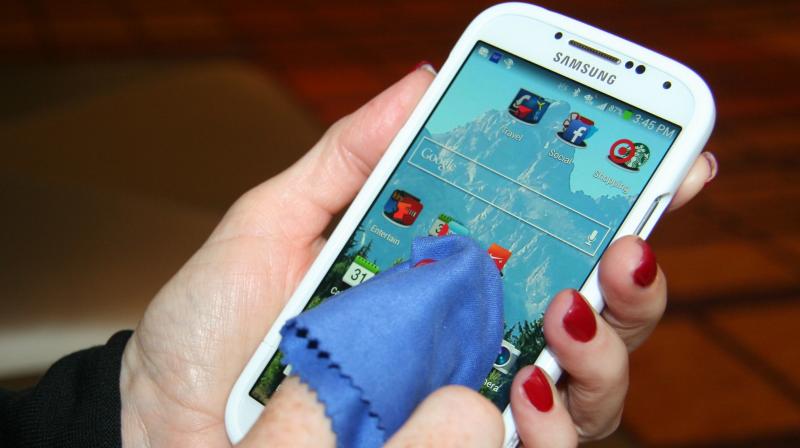Aarogya Setu a must but phones themselves can give health workers coronavirus
17 May, 2020

A group of doctors from AIIMS, Raipur have recommended restrictions on make use of mobile phones in healthcare institutions amid the COVID-19 pandemic, warning that such devices could be a potential carrier of the virus and lead to infection among healthcare workers.
In a commentary published in the BMJ Global Health journal, the doctors explained that cellular phone surfaces certainly are a peculiar ‘high-risk’ surface, that may directly are exposed to the facial skin or mouth, regardless if hands are properly washed and one study indicates that some healthcare employees use phones every a quarter-hour to two hours.
Though there have been many significant guidelines from various health organisations like WHO and CDC concentrating on prevention and control of disease, the commentary highlighted “there is absolutely no mention of or concentrate on cell phones in these guidelines, like the WHO infection control and prevention guidelines, which recommends the use of hand washing”.
In healthcare facilities, phones are being used to talk to other healthcare workers, research recent medical guidelines, research drug interactions, understand adverse events and side effects, conduct telemedicine appointments and track patients among others, stated the document .
The document has been authored by Dr Vineet Kumar Pathak, Dr Sunil Kumar Panigrahi, Dr M Mohan Kumar, Dr Utsav Raj and Dr Karpaga Priya P from the Department of Community and Family Medicine.
“In their tendency to can be found in direct contact with the face, nose or eyes in healthcare settings, cell phones are perhaps second and then masks, caps or goggles.
“However, they are neither disposable nor washable like these other three, thus warranting disinfection. Mobile phones can effectively negate hand hygiene... There is growing evidence that cell phones are a potential vector for pathogenic organisms,” the authors said.
It's the need of the hour to handle proper hygienic usage of cell phones in healthcare settings. In a study in India, almost 100 % of health employees of a tertiary care hospital used cell phones in the hospital, but only 10 per cent of them had anytime wiped their cell phones clean, the commentary published on April 22 said.
“The safest thing to do is to think about your phone as an extension of your hand, so remember you are transferring whatever is on your own phone to your hand,” Dr Pathak said.
Amidst the ongoing pandemic, two biggest mobile phone companies have uploaded their user support guidelines, saying that 70 personal computer isopropyl alcohol or Clorox Disinfecting Wipes can be utilised to gently wipe the surface surface of phones in switched-off mode.
However, in doing this, the application of bleach or entry of moisture through the openings should be avoided, and any harsh chemical may damage the oleophobic screen, leading to damage in the touchscreen sensitivity of the telephone, the article stated.
Mobile phones are probably the most highly touched surfaces based on the Centers for Disease Control and Prevention (CDC), along with counters, tabletops, doorknobs, bathroom fixtures, toilets, keyboards, tablets and bedside tables.
The doctors recommended restriction on cellular phone usage in healthcare settings like ICUs and procedure theatres, while advocating usage of headphones to prevent contact with the facial skin while talking.
There should be no sharing of mobile phones, headphones or headsets of any sort. Furthermore, where available, the utilization of interdepartmental intercom facility though telephones could be promoted.
AIIMS, New Delhi, Resident Doctors’ Association (RDA) General Secretary, Dr Srinivas Rajkumar T said even outside healthcare settings, persons should pay special attention to usage of cell phones because they carry them to all places.
“Phone and computer peripherals like keyboard, mouse, etc ought to be covered with transparent plastic covers which is often cleaned without interfering with their function. Cleaning hands by soap or alcohol based hand sanitizer before and after connection with phone and between connection with other surfaces can reduce the threat of potential transmission.
“Using handsfree headset, dedicated operator/assistant per ward handling the communication via common line in hospitals while working can permit communication without compromising safety,” Dr Srinivas said.
Source:
TAG(s):
